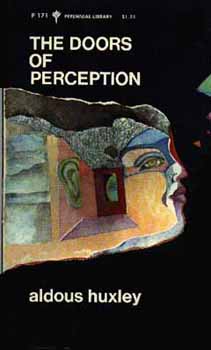Part of my continuing series about my hero, Hunter S. Thompson. By the way, have you seen Rango yet?

Going to trial with a lawyer who considers your whole life-style a Crime in Progress is not a happy prospect.
I hate to advocate drugs, alcohol, violence, or insanity to anyone, but they've always worked for me.
If you're going to be crazy, you have to get paid for it or else you're going to be locked up.
The Edge... there is no honest way to explain it because the only people who really know where it is are the ones who have gone over.
When the going gets weird, the weird turn pro.
No sympathy for the devil; keep that in mind. Buy the ticket, take the ride...and if it occasionally gets a little heavier than what you had in mind, well...maybe chalk it off to forced consciousness expansion: Tune in, freak out, get beaten.
Life should not be a journey to the grave with the intention of arriving safely in a pretty and well preserved body, but rather to skid in broadside in a cloud of smoke, thoroughly used up, totally worn out, and loudly proclaiming "Wow! What a Ride!"
We are all alone, born alone, die alone, and -- in spite of True Romance magazines -- we shall all someday look back on our lives and see that, in spite of our company, we were alone the whole way. I do not say lonely -- at least, not all the time -- but essentially, and finally, alone. This is what makes your self-respect so important, and I don't see how you can respect yourself if you must look in the hearts and minds of others for your happiness.
Let us toast to animal pleasures, to escapism, to rain on the roof and instant coffee, to unemployment insurance and library cards, to absinthe and good-hearted landlords, to music and warm bodies and contraceptives... and to the "good life", whatever it is and wherever it happens to be.
Life has become immeasurably better since I have been forced to stop taking it seriously.
Some may never live, but the crazy never die.
We had two bags of grass, seventy-five pellets of mescaline, five sheets of high powered blotter acid, a salt shaker half full of cocaine, and a whole galaxy of multi-colored uppers, downers, screamers, laughers... and also a quart of tequila, a quart of rum, a case of Budweiser, a pint of raw ether and two dozen amyls. Not that we needed all that for the trip, but once you get locked into a serious drug collection, the tendency is to push it as far as you can.
Hallucinations are bad enough. But after awhile you learn to cope with things like seeing your dead grandmother crawling up your leg with a knife in her teeth. Most acid fanciers can handle this sort of thing. But nobody can handle that other trip-the possibility that any freak with $1.98 can walk into the Circus-Circus and suddenly appear in the sky over downtown Las Vegas twelve times the size of God, howling anything that comes into his head. No, this is not a good town for psychedelic drugs.
I haven't found a drug yet that can get you anywhere near as high as a sitting at a desk writing, trying to imagine a story no matter how bizarre it is, or going out and getting into the weirdness of reality and doing a little time on the Proud Highway.
A cap of good acid costs five dollars and for that you can hear the Universal Symphony with God singing solo and Holy Ghost on drums.
Too strange to live, too rare to die!
We have bigger things to brood on and enormous reasons for wallowing in terminal craziness until we finally hit bottom.
The only thing that really worried me was the ether. There is nothing in the world more helpless and irresponsible and depraved than a man in the depths of an ether binge. And I knew we'd get into that rotten stuff pretty soon. Probably at the next gas station.
Maybe it meant something. Maybe not, in the long run...but no explanation, no mix of words or music or memories can touch that sense of knowing that you were there and alive in that corner of time and the world. Whatever that meant...










